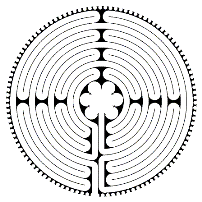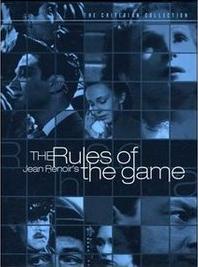
On the LinkedIn Q/A, I asked the question set out above and included the following comments.
"Soren Kierkegaard in his book "The Point of View for my Work as an Author" suggests what he sees as the best way to work with someone caught up in an illusion, much like the approach of Socrates, is as follows:
"...A direct attack only strengthens a person in his illusion, and at the same time embitters him. There is nothing that requires such gentle handling as an illusion, if one wishes to dispel it. If anything prompts the prospective captive to set his will in opposition, all is lost. And this is why a direct attack achieves, and it implies moreover the presumption of requiring a man to make to another person, or in his presence, an admission which he can make most profitably to himself privately. This is what is achieved by the indirect method which, loving and serving the truth, arranges everything dialectically for the prospective captive, and then shyly withdraws (for love is always shy), so as not to witness the admission which he makes to himself alone before God --- that he has loved hitherto in an illusion.
"...if real success is to attend the effort to bring a man to a definite position, one must first of all take pains to find him where he is and begin there. This is the secret art of helping others. Anyone who has not mastered this is himself deluded when he proposes to help others. In order to help another effectively I must understand what he understands. If I do not know that, my greater understanding will be of no help to him...all true effort to help begins with self-humiliation: the helper must first humble himself under him he would help, and therewith must understand that to help does not mean to be a sovereign but to be a servant, that to help does not mean to be ambitious but to be patient, that to help means to endure for the time being the imputation that one is in the wrong and does not understand what the other understands.
"Take the case of a man who is passionately angry, and let us assume that he is really in the wrong. Unless you can begin with him by making it seem as if it were he that had to instruct you, and unless you can do it in such a way that the angry man, who was too impatient to listen to a word of yours, is glad to discover a complaisant and attentive listener --- if you cannot do that, you cannot help him at all...if you cannot humble yourself, you are not genuinely serious. Be the amazed listener who sits and hears what the other finds the more delight in telling you because you listen with amazement... If you can do that, if you can find exactly the place where the other is and begin there, you may perhaps have the luck to lead him to the place where you are. For to be a teacher does not mean simply to affirm that such a thing is so, or to deliver a lecture, etc. No, to be a teacher in the right sense is to be a learner. Instruction begins when you, the teacher, learn from the learner, put yourself in his place so that you may understand what he understands in the way he understands it.
"Do you agree with SK? Do you have a different approach to educating others in the sense of leading them out of an illusion? Your participation is appreciated."
I received many answers. You may read them by following this link.
The question is a new form of the age-old questions about whether virtue can be taught and how to live the good life.
One of my hero’s is Socrates as portrayed in the dialogue’s of Plato. These dramatic dialogues help me see how Socrates lived the decisions of his life.
Please consider reading the following summaries, if not the dialogues themselves, as posted on Wikipedia, in the order I have set out below and let me know what you think.
"Soren Kierkegaard in his book "The Point of View for my Work as an Author" suggests what he sees as the best way to work with someone caught up in an illusion, much like the approach of Socrates, is as follows:
"...A direct attack only strengthens a person in his illusion, and at the same time embitters him. There is nothing that requires such gentle handling as an illusion, if one wishes to dispel it. If anything prompts the prospective captive to set his will in opposition, all is lost. And this is why a direct attack achieves, and it implies moreover the presumption of requiring a man to make to another person, or in his presence, an admission which he can make most profitably to himself privately. This is what is achieved by the indirect method which, loving and serving the truth, arranges everything dialectically for the prospective captive, and then shyly withdraws (for love is always shy), so as not to witness the admission which he makes to himself alone before God --- that he has loved hitherto in an illusion.
"...if real success is to attend the effort to bring a man to a definite position, one must first of all take pains to find him where he is and begin there. This is the secret art of helping others. Anyone who has not mastered this is himself deluded when he proposes to help others. In order to help another effectively I must understand what he understands. If I do not know that, my greater understanding will be of no help to him...all true effort to help begins with self-humiliation: the helper must first humble himself under him he would help, and therewith must understand that to help does not mean to be a sovereign but to be a servant, that to help does not mean to be ambitious but to be patient, that to help means to endure for the time being the imputation that one is in the wrong and does not understand what the other understands.
"Take the case of a man who is passionately angry, and let us assume that he is really in the wrong. Unless you can begin with him by making it seem as if it were he that had to instruct you, and unless you can do it in such a way that the angry man, who was too impatient to listen to a word of yours, is glad to discover a complaisant and attentive listener --- if you cannot do that, you cannot help him at all...if you cannot humble yourself, you are not genuinely serious. Be the amazed listener who sits and hears what the other finds the more delight in telling you because you listen with amazement... If you can do that, if you can find exactly the place where the other is and begin there, you may perhaps have the luck to lead him to the place where you are. For to be a teacher does not mean simply to affirm that such a thing is so, or to deliver a lecture, etc. No, to be a teacher in the right sense is to be a learner. Instruction begins when you, the teacher, learn from the learner, put yourself in his place so that you may understand what he understands in the way he understands it.
"Do you agree with SK? Do you have a different approach to educating others in the sense of leading them out of an illusion? Your participation is appreciated."
I received many answers. You may read them by following this link.
The question is a new form of the age-old questions about whether virtue can be taught and how to live the good life.
One of my hero’s is Socrates as portrayed in the dialogue’s of Plato. These dramatic dialogues help me see how Socrates lived the decisions of his life.
Please consider reading the following summaries, if not the dialogues themselves, as posted on Wikipedia, in the order I have set out below and let me know what you think.
| 1. Where are we coming from? |
| 2. Where do we want to go? |
| 3. What are we waiting for? |
| 4. What do our wise ones generally advise? |
| 5. What are the pros and cons of going forward? |
| 6. What are the “Powers That Be“ saying? |
| 7. What is our true agenda? |
| 8. What are the facts and reasons we are contending with? |
| 9. What insights and oversights are emerging? |
| 10. How are we telling our story? |
| 11. What are we willing to risk to gain what we can only hope for? |
| 12. How do we know the decision we discern is the right one? |



















































No comments:
Post a Comment